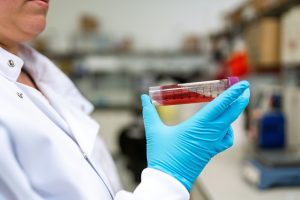Eastman Kodak offered generics loan. Teva could be up next.
The U.S. government announced that it is considering lending $765 million to Eastman Kodak to set up a generic drug manufacturing business. The loan will support the launch of Kodak Pharmaceuticals and will mark the International Development Finance Corporation (DFC)’s first investment using the president’s executive order supporting the domestic response to the pandemic under the Defense Production Act. Currently, there is no domestic process for generics and the U.S. primarily imports from India and China, which makes the prospect of Kodak producing these chemicals very attractive.
However, circumstances surrounding the potential decision have reportedly led to an investigation by the Securities and Exchange Commission (SEC) over suspected insider trading violations. The generics deal resulted in Kodak issuing 30 million additional shares, weakening the value of the stock already outstanding. The company responded to a letter issued by Elizabeth Warren on behalf of the SEC, stating it would cooperate with the probe.

President Trump said, “The concept of the deal is good. We’ll do a little study on that. We’ll find out. If there is any problem, we’ll let you know about it very quickly. I wasn’t involved in it. It’s a big deal; it’s a way of bringing back a great area, in addition to pharmaceuticals.”
CEO of Teva Pharmaceutical Industries, which is also a major player in the market for generics, Kåre Schultz responded, “Getting a loan from the government to start manufacturing of course does not make it profitable or sustainable, unless those structural changes happen. We’ve been discussing with the government the changes that you could make, structural changes, by putting demands on other countries that would be similar to the demands in the U.S., in which case it would be sustainable to do API manufacturing in the U.S.”
The decision followed concerned that COVID-19 would cause factory shutdowns in China, leading to a worldwide shortage of pharmaceuticals. Subsequently, the U.S. government became concerned foreign countries would ban the export of foreign drugs until sufficient supply can be regained.
Schultz said he would be happy to do more manufacturing in the U.S. The company is headquartered in Israel. “We’d love to have it, but it has to be on sustainable economic terms, and borrowing money doesn’t really solve that issue,” he said.
Of course, litigation brought by local and state governments against Teva over its alleged role in the opioid crisis has drawn some concern with regards to doing business the drug maker. Although it reached a deal in 2019 to settle the lawsuits for $250 million in cash and $23 billion worth of anti-addiction drugs, the deal still hasn’t been finalized.
“Not much has happened,” Schultz said of the tentative resolution. “We’ve had good collaboration with the [attorneys general]. We’ve been working on some language, some practicalities. But we haven’t really been pushed to a final conclusion.” He commented that COVID-19 has likely stalled the process, adding, “I’m still very optimistic that it will happen in the end.”
Schultz also mentioned Teva has been able to avoid critical supply-chain disruptions during the coronavirus, saying, “We are very happy we’ve been able to show resilience and keep things moving during this rather challenging time. I think we’re in good shape.”
Sources:
SEC Investigating Kodak After Stock Surge Following Drug Deal With US Government
Teva CEO Has Doubts About Making Generic-Drug Ingredients in the U.S.


Join the conversation!